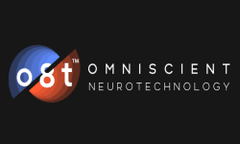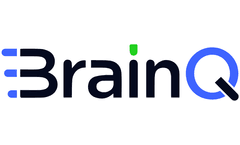Cognitive Function Articles & Analysis
24 articles found
Sleep apnea leads to cardiovascular issues, chronic fatigue, daytime drowsiness and poor cognitive functioning. Additionally, the sleep deprivation that sets in with time leads to irritability and mood swings, affecting your day-to-day functioning and quality of life. ...
Supporting Brain FunctionThe brain is composed of nearly 60% fat, and natural lipids play a crucial role in maintaining optimal brain function. Omega-3 fatty acids, in particular, are essential for brain development and cognitive function. ...
ByMatexcel
Is your sleep interrupted every night by your partner’s chronic, loud snoring? If your answer is “YES!”, then you’re probably aware of what a nightmare this can be and how to deal with a snoring partner. Here are several reasons: Resentment is growing in your relationship because your partner isn’t taking the issue seriously and isn’t trying to find a good ...
Do you have fragmented sleep all through the night? Do you wake up oftentimes at night, struggling to breathe? Is your partner tired of your heavy snoring and often reminds you to see a doctor? Well, if your chronic, frequent snoring is associated with sleep apnea, there are a number of factors and issues to be aware of. Basically, it’s a matter of cause and effect with sleep apnea ...
As the temperatures rise and the sun blazes, staying hydrated becomes increasingly crucial. Whether you’re lounging by the pool, hiking a scenic trail, or simply running errands, the heat can quickly take a toll on your body. Proper hydration is essential for maintaining health, energy, and overall well-being during hot weather. In this post, we’ll explore why staying ...
Furthermore, the natural cholinesterase inhibitory properties of ox bile extract powder contribute to enhancing memory and cognitive function. Cholinesterase inhibitors play a crucial role in the treatment of Alzheimer's disease and other cognitive impairments by increasing the levels of acetylcholine in the brain, which is involved in memory and ...
People living with frontotemporal dementia, or FTD, are commonly misdiagnosed with psychiatric disorders or Alzheimer’s disease and other causes of dementia, such as Parkinson’s disease and vascular dementia. While frontotemporal dementia and Alzheimer’s disease can both cause dementia, there are distinct differences in impacted regions of the brain and, consequently, ...
These drugs can promote or restore choline function by inhibiting the activity of acetylcholine, play a therapeutic role in AD patients in the early and middle stages, and maintain the cognitive state of patients. AD drug therapy includes cognitive-enhancing drugs and drugs that relieve neuropsychiatric symptoms in AD patients. ...
Emerging research suggests meditation may have significant benefits to brain health, ranging from improved mental and behavioral health to enhanced cognitive function. In this article, we will break down how meditation helps the brain and provide helpful tips for incorporating meditation into your brain health toolbox. ...
Many neurological diseases, including Alzheimer’s disease, can be thought of as continuums, whether the presence and manifestation of the disease are different depending on the stage of the disease. In this article, we provide a high-level overview of the stages in the Alzheimer's disease continuum, with a focus on preclinical Alzheimer’s disease and its importance in patient care and ...
For decades, neuroscientists and clinicians have studied the brain attempting to pinpoint the regions that control specific functions. This is the age old question of ‘What part of the brain is responsible for ...
In addition to the pandemic, the digitization of healthcare is rapidly shifting clinical trials from analog to hybrid or fully decentralized clinical trials, catalyzing the development and implementation of digital health technologies to support clinical research. Digital endpoints not only support the decentralization of clinical trials but also provide a means to collect more sensitive, ...
Alzheimer’s and Parkinson’s disease are both neurological diseases that cause progressive damage to the brain, resulting in a decline in neurocognitive function. While Parkinson’s disease is known for affecting movement and function and Alzheimer’s disease is known for affecting cognition, they are a bit more complex than ...
While the manifestation of symptoms tends to vary from patient to patient, individuals with Parkinson’s disease will likely experience a combination of cognitive impairments (how they think) and functional impairments (how they move) throughout the disease course. ...
While our brains depend on sugar to function properly, too much of this fuel can be detrimental to brain health. Below, we break down how sugar impacts the brain, including its effect on cognitive function, mood, and disease risk. ...
Primary care practitioners are often the first to address a patient’s or family’s concerns about memory loss or the possibility of dementia. Detecting cognitive decline as early as possible is fundamental to a patient’s ability to receive earlier access to treatments and therapies, and, consequently, more effective treatment and improved health outcomes. There are several ...
But did you know that research has discovered a link between smoking and cognitive decline? This research emphasizes the importance of identifying and controlling modifiable risk factors for cognitive decline and dementia as early as possible while monitoring brain health to detect changes in brain function as early as possible. Here is ...
Humans are inherently social beings who thrive on making and maintaining social relationships. Connecting with and supporting one another forms deep bonds that make us feel seen, valued, and like we belong. These social interactions are not only important for our emotional well-being but also for our physical well-being-maybe even more so than originally thought. Loneliness, an increasingly ...
The COVID-19 pandemic has catalyzed the implementation of decentralized clinical trials in neurology, bringing the immense benefits of clinical trials to light. This industry-wide push towards trial decentralization has emerged as a key element for improving clinical trial efficiency and improving the experience for patients and physicians. By utilizing digital technologies, such as wearables, ...
Many survivors struggle daily with the cognitive, emotional, and physical damage caused by the stroke, and often live with little hope of regaining full independence. ...








